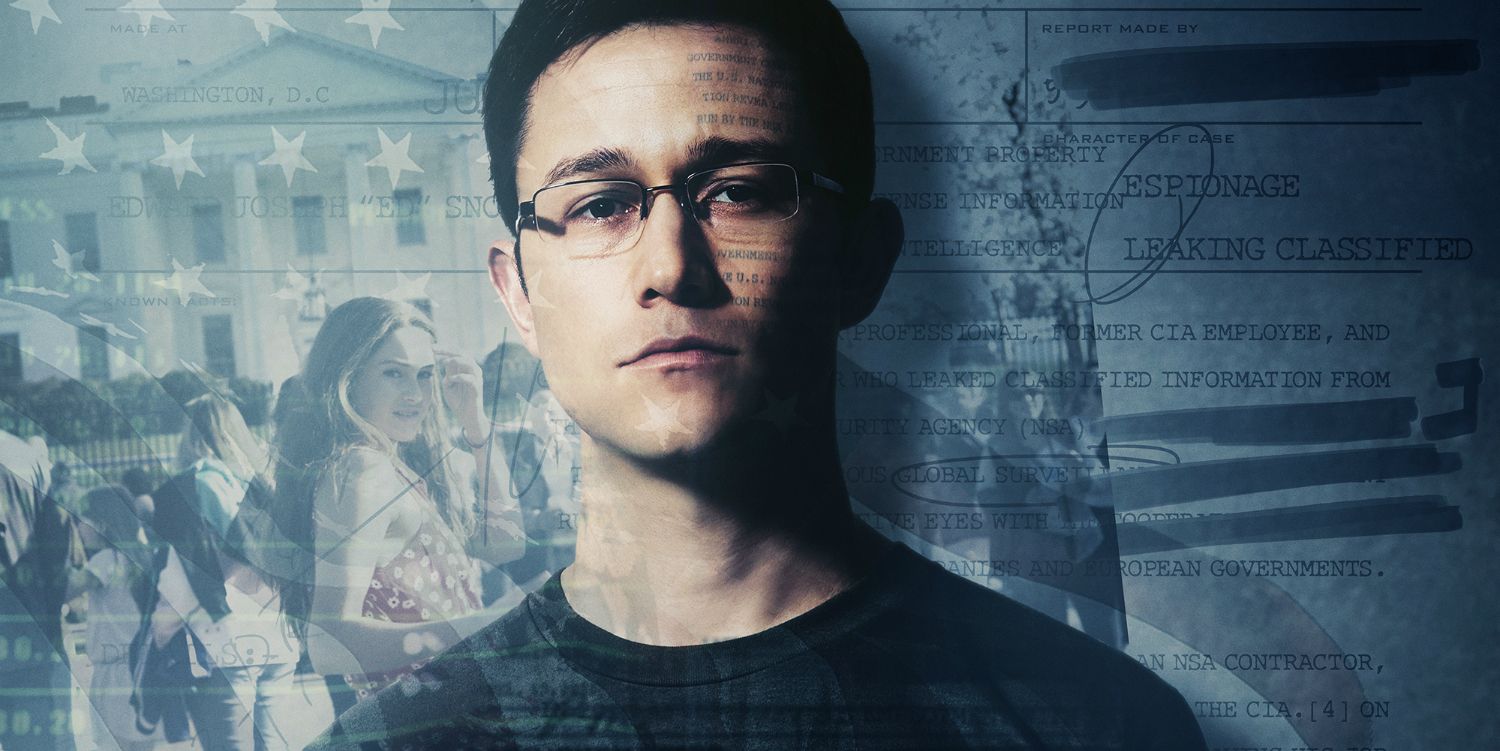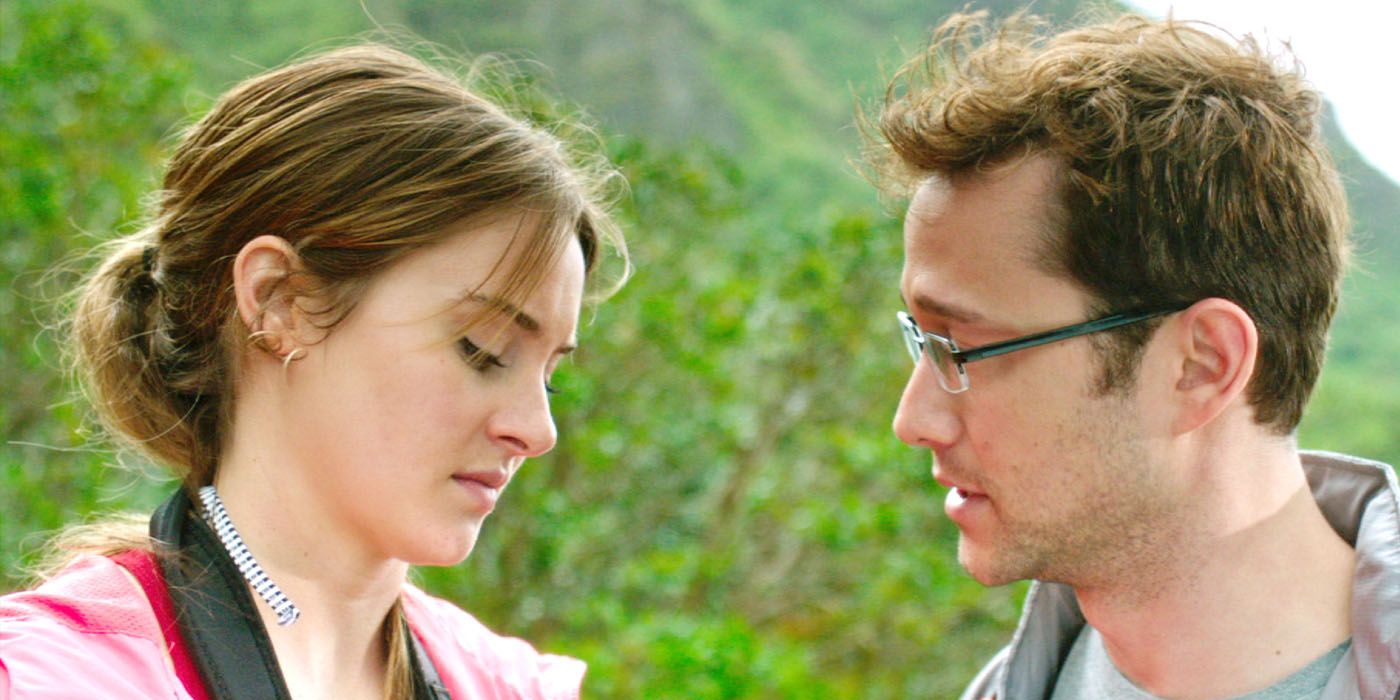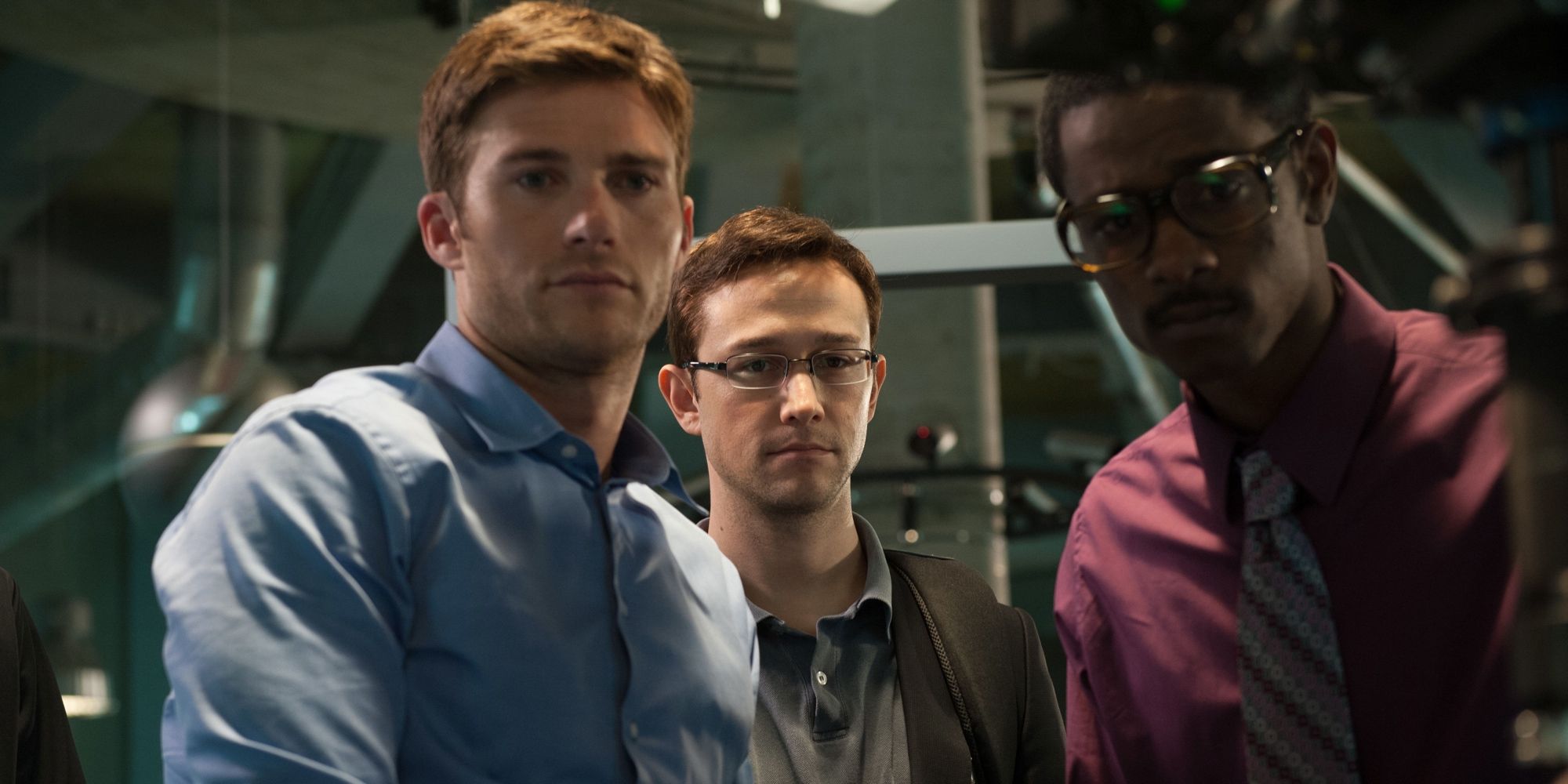Before social media ruled our daily lives and smartphones were commonplace, before the Internet was even a thing and computers were objects so large they took up the entire floor of an office building, and before a person's every single action was recorded and words could be documented forever, privacy for individual citizens and celebrities simply meant closing your curtains at night to keep out the peeping toms.
Those days are long gone, and now everyone has to be vigilant at protecting themselves against would-be hackers, phishers, scam artists and yes, even the government. In Snowden (starring Joseph Gordon-Levitt, Scott Eastwood and Shailene Woodley), the motivations behind Edward Snowden's actions are explored as he publicly reveals that the CIA has been spying on texts and cellphone conversations of the American people for years. With that knowledge revealed, is it any wonder people have become slightly paranoid when it comes to their digital privacy and other cybersecurity concerns?
While celebrities, indeed, make their living in front of a camera - trading in a certain right to privacy in public for fame - that doesn't mean they've given up all of their privacy 24-hours a day. During an interview with Screen Rant, Woodley expressed her concern over individual privacy rights:
"As an actor I chose a life, that going into it, I knew there was a possibility that people might follow me, or people might know who I was. But someone say, like my mom or my neighbor down the street... They didn't chose a life to be followed or to be watched, and yet, they are still being followed and they are still being watched..."
Woodley wasn't the only cast member working on Snowden who looked at their individual privacy in a different light since joining the project. Gordon-Levitt (who portrayed Snowden) says his eyes were open to just how little privacy people actually have while filming:
"I'm... a fan of the new technology. I started a company that would be impossible without the internet. But I do think there's probably some potential downsides... as well. Every technology can be used for good and can be used for bad and I think before doing this movie I never really spent the time to think about the potential downsides of the amazing technology that we're lucky enough to have today."
Celebrity concerns over individual privacy doesn't stop there. Co-stars Scott Eastwood (Suicide Squad), Zachary Quinto (Star Trek Beyond) and Melissa Leo (The Big Short) all admitted that, since working on Snowden, they've started putting little pieces of tape over the camera on their laptops to prevent spying - just in case someone hacks it. That might sound like an absurd action to take, until you realize webcam hacking happens an alarmingly high rate. In fact, earlier this year a Russian hacker posted a video on YouTube showing streams from hundreds of hacked webcams across the world - truly creepy and disturbing news.
Webcams aren't the only way a malicious user can invade a someone's privacy. In 2012, Scarlett Johansson's email account was hacked by a Florida man who, pretending to be someone she knew, duped her into sending nude photos of herself (he's currently serving 10 years in prison for the crime). In 2014, hundreds of celebrity iCloud accounts were hacked by an unknown person(s) ,and stolen photos of them were uploaded onto various social media sites.
Jennifer Lawrence's (X-Men: Apocalypse) stolen nude photos were given the most attention by the media, but Kaley Cuoco, Kirsten Dunst, Kate Upton, Ariana Grande and Olympic gymnast McKayla Maroney were also victims. Hackers were able to exploit a security flaw in Apple's software, which was quickly fixed, but how many more "exploits" are still out there? Other photo leaks have allegedly occurred, since then but those "stolen" photos have mostly turned out to be movie stills or fakes.
However, that doesn't mean individual privacy violations aren't still occurring. Just last month, Ghostbusters star Leslie Jones had nude photos stolen from her account and shared on the internet. Quinto says he does his best to prevent the hacking of his electronic devices the only way he knows how: "I have no any two passwords that are the same for any service online. I have two-step verification enabled on all my devices..." - but obviously that guarantees neither security nor privacy for him or any celebrity. So why should any of this concern you?
When the layers of their fame and fortune are peeled away, celebrities are just like everyone else - they, like all of us, simply want to feel secure in their digital "homes". They don't want their private lives spied on by anyone, whether it be by the general public or by their own government. However, it seems that in this age of technology that notion may no longer even be a realistic expectation. That's not to suggest that no one, including celebrities, should just accept or even expect their privacy to be violated - but often, protecting one's online privacy can feel like a fruitless endeavor.
John McAfee (a leader in the field of cybersecurity) was recently in Times Square and, by standing in just one area, was able to point out around 200 cameras, all focused on the unsuspecting and oblivious general public. He points out that all of these cameras are connected to a network, making them all susceptible to hacking at any time - all it would take is someone with the desire and a little knowledge. Last year, Wired Magazine showed hackers remotely shutting down a Jeep and even the FBI is now reporting car hacking is now a real and viable threat. Yes, even our cars aren't as safe as we once thought.
It's easy to listen to a celebrity say that they place tape over their laptop cameras, and to label them as paranoid or sizing them for a tinfoil hat. However, once you start reading all the stories about multiple instances of real technological privacy invasion, maybe it's time we start asking them to "pass the tape"?
Snowden is currently in theaters.



